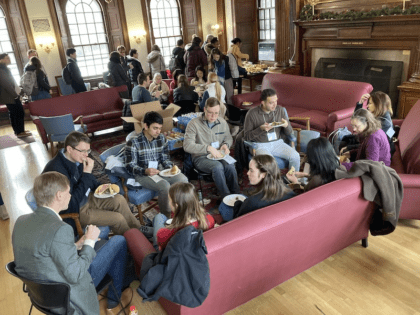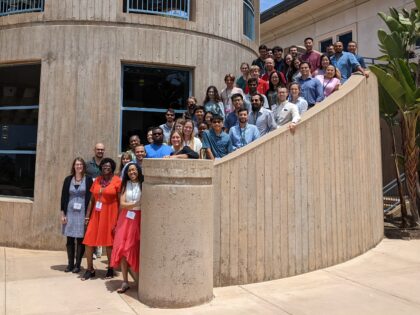On January 19-20, 2024, the first Developing a Christian Mind Conference in the United States was held at Harvard and Massachusetts Institute of Technology (MIT). This article is drawn from a report written to ministry partners by Jeff Barneson, Associate Director of Faculty Ministry and Campus Staff Minister at Harvard University. Last weekend we hosted our first conference on Developing a Christian Mind at Harvard & MIT. The initiative, based on the longstanding conference - DCM Oxford - was an experiment for … [Read more...] about Conference Report: Developing A Christian Mind at Harvard/MIT
Conference Reports
ASA 2022 Musings — Promoting God or Self?
The Emerging Scholars Network has partnered with the American Scientific Affiliation to host Early Career Tracks at the ASA Annual Meeting going back more than five years. We are grateful for this reflection piece from George Varghese from one of the panel discussions led by Hannah Eagleson. I attended the Saturday session of the American Scientific Affiliation on July 30th at a serene setting in Point Loma Nazarene overlooking the ocean. While Josh Swamidass gave an inspiring plenary talk and many other sessions were … [Read more...] about ASA 2022 Musings — Promoting God or Self?
Ice Cream, Work, and Liturgy: Formed to Work for the Glory of God Conference
Here at the Emerging Scholars Network, we often think of what we do as applying the ideas of the faith and work movement to the work of being an academic. We believe God cares about all work, and calls believers to work in many different fields as a way of engaging with His good creation and witnessing to others about His grace. We try to apply that framework to the work of Christians in the university. Today, ESN editor Hannah Eagleson reflects on a recent experience at a Redeemer Center for Faith and Work conference … [Read more...] about Ice Cream, Work, and Liturgy: Formed to Work for the Glory of God Conference
Developing a Christian Mind at Oxford 2
As mentioned, the grounds of New College in Oxford provided the perfect setting in which to explore historic and current influences of Christian faith on academic disciplines. Along with the formal dinner, tea and coffee breaks convened mornings and afternoons provided valuable opportunities to meet colleagues attending different track sessions. The mood at Developing a Christian Mind (DCM) initiative at Oxford was casual and friendly, with much interaction and appreciation of the chance to discuss important topics … [Read more...] about Developing a Christian Mind at Oxford 2
Developing a Christian Mind at Oxford
How do we integrate our Christian faith and academic life? How do we worship God with our minds? How do we foster a Christian intellectual community? These are the questions that drive the Developing a Christian Mind (DCM) initiative at Oxford, and I had the good fortune to attend their two-day spring conference while on sabbatical in England. We met in an Oxford college founded in 1379, with its beautiful gardens and medieval chapel, cloister, and city wall adding to the atmosphere. … [Read more...] about Developing a Christian Mind at Oxford


